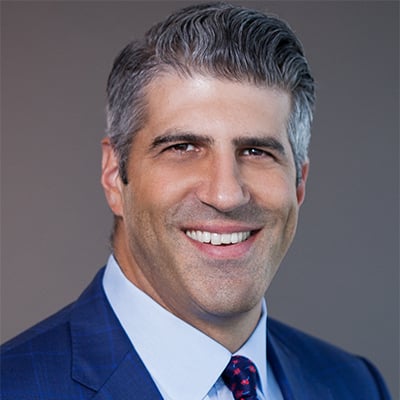Judge Overturns FCPA Jury Verdict Against Former Alstom Executive Lawrence Hoskins
In another twist to a high-profile prosecution under the Foreign Corrupt Practices Act (“FCPA”), on February 26, 2020, Connecticut federal judge Janet Bond Arterton overturned a jury’s November 2019 conviction of Lawrence Hoskins, a British national and former executive of Alstom SA (“Alstom”), a French company.1 In a detailed, fact-based opinion, Judge Arterton found that prosecutors failed to put forth sufficient evidence at trial to establish that Hoskins was an agent of Alstom’s U.S. subsidiary, Alstom Power Inc. (“Alstom Power”), and acquitted Hoskins on all seven FCPA-related counts. The court denied Hoskins’ challenges to his money laundering convictions, on which substantial criminal exposure remains.
The implications of this opinion are significant for prosecutions, like that of Hoskins, in which the jurisdictional hook for imposing criminal liability required finding that an individual was an “agent” of a U.S. domestic concern.2 The FCPA allows jurisdiction over foreign nationals if they are agents, employees, officers, directors or shareholders of a domestic concern. Because Hoskins is not a U.S. citizen and was not employed by Alstom Power (a domestic concern), the government needed to establish that Hoskins was an agent of Alstom Power. The court’s ruling sheds light on the precise extent of control a domestic concern must exert over purported agents, and the key factors in determining whether that control is sufficiently meaningful to establish an agency relationship. Further light may well be shed in the Second Circuit on appeal.
Background
Judge Arterton’s ruling is just the latest episode in a prosecution that has been going on for nearly eight years. In 2012, a grand jury charged Hoskins with violating the FCPA through a multimillion-dollar bribery and money laundering scheme. According to the indictment, during his time as a senior vice president at Alstom, Hoskins engaged in a conspiracy to pay bribes to officials in Indonesia to win a $118 million contract under which Alstom Power, located in Connecticut, and its partner would provide power-related services to citizens of Indonesia. Hoskins and others allegedly hired two consultants, ostensibly to provide consulting services in connection with the power-services project in Indonesia, though the consultants’ real role was to bribe Indonesian government officials.
The case went to trial in November 2019, after years of litigation, which included a 2018 opinion from the Second Circuit Court of Appeals finding that the U.S. Department of Justice (“DOJ”) could only pursue its case against Hoskins as an agent of a domestic concern. The jury convicted Hoskins on 11 counts — six counts of violating the FCPA, one count of conspiracy to violate the FCPA, three counts of money laundering and one count of conspiracy to commit money laundering offenses.
In response to Hoskins’ post-trial motions for acquittal or a new trial, Judge Arterton granted Hoskins’ acquittal with respect to the seven FCPA-related counts, but denied the motion as to the remaining four counts relating to money laundering.
Decision
Under the agency theory, the FCPA charges turned on whether the government could show that Hoskins was an “agent” of a domestic concern (i.e., Alstom Power). Judge Arterton noted that “[a]n essential element of agency is the principal’s right to control the agent’s actions.” According to the court, no agency relationship exists where a purported principal exercises control over several important aspects of a transaction, but lacks control over how the purported agent performs the task beyond any initial specifications.
Here, Judge Arterton agreed with Hoskins that, although the government introduced evidence suggesting that Alstom Power controlled the project and gave Hoskins instructions, there was no evidence that Alstom Power controlled Hoskins’ “efforts to achieve the objectives set by [Alstom Power].” Furthermore, beyond Alstom Power’s general control of the project and involvement in establishing the terms under which consultants were hired, there was no evidence that anyone at Alstom Power had the power to: (i) terminate Hoskins’ participation in the hiring of consultants; (ii) assess Hoskins’ performance; or (iii) otherwise exert control over Hoskins’ actions, such as by impacting his compensation. Corporate records, emails, and trial testimony confirmed that Hoskins had approval authority on behalf of Alstom’s International Network, but that Alstom Power had no right to control or direct his actions.
As a result, Judge Arterton concluded that there was insufficient evidence for a rational jury to conclude that Hoskins was an agent of Alstom Power.
Key Takeaways
An Unexpected Twist. The court’s ruling was unexpected, even for this case, which has seen years of litigation, including appeals to the Second Circuit. It is rare for a court to set aside a jury’s verdict and acquit a defendant because a court must uphold the jury’s verdict if “any rational jury” could have found that the defendant committed the crime. Also, this is not likely to be the end of the story; we expect the government to appeal Judge Arterton’s decision.
Substantive Legal Implications. The ruling certainly casts doubt on expansive FCPA liability theories and may limit the instances in which the DOJ prosecutes FCPA cases against foreign nationals that are not employed by domestic concerns and that did not act within the U.S. At a minimum, prosecutors will likely gather more evidence of a domestic concern’s control over an alleged agent, and may focus on evidence of the entity’s right to terminate the agent or otherwise impact the agent’s compensation.
Potential Precedential Value. While Judge Arterton’s opinion provides an extensive discussion of the principle of “control,” it is unclear whether the decision will have a meaningful impact on upcoming cases. The discussions of “control” and “agency” are nuanced and highly fact-specific, which may give the government room to distinguish future cases. However, the court’s analytical framework raises key considerations (e.g., whether the principal could fire or demote the agent, or whether the principal could impact the agent’s compensation) that future defendants may be able to use to their advantage.
Money Laundering. Despite the acquittal on seven FCPA-related counts, Judge Arterton’s decision upholding the money laundering charges signals that money laundering is likely to be a staple of government investigations and prosecutions going forward.
1. Ruling on Defendant’s Rule 29(C) and Rule 33 Motions, U.S. v. Hoskins, case number 3:12-cr-00238, in the U.S. District Court for the District of Connecticut.↩
2. A domestic concern is any business incorporated in the U.S.; any foreign or domestic business that has its principal place of business in the U.S.; or any individual who is a citizen, national or resident of the U.S.↩









